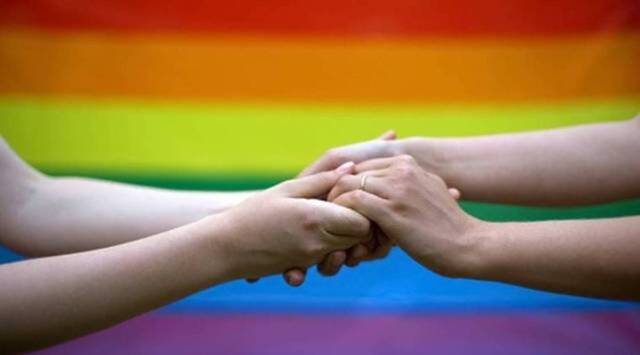Ahead of a Supreme Court hearing on same-sex marriage petitions, the Centre reaffirms — it’s a legislative matter

The Centre has told the Supreme Court in an application challenging the maintainability of the petitions that granting legal sanction to same-sex marriages would require the “judicial creation of a social institution called’marriage’ of a different kind than contemplated by the existing law.”
On Tuesday, a five-judge Constitution bench of the Supreme Court of India, composed of Chief Justice of India D. Y. Chandrachud and Justices S. K. Kaul, Ravindra Bhat, Hima Kohli, and PS Narasimha, will consider a number of petitions seeking legal recognition for same-sex marriages.
In its application, the Centre implored the Supreme Court to rule on the maintainability of the petitions “as a preliminary issue” because “the issue goes to the heart of the matter and has far-reaching implications.” According to the petition, “the question of legal recognition of same-sex marriage and its parity with the existing concept of marriage, as an exclusively heterogeneous institution, which is governed by the existing legal regime and has a sanctity attached to it in every religion in the country” “seriously affects the interests of every citizen.”
It argued that the issue “raises critical questions about whether questions of this nature, which necessitate the creation of new social institutions, can be prayed for as part of the judicial adjudication process.”
Marriage is a socio-legal institution that can only be created, recognised, given legal sanctity, and regulated [by making incidental provisions such as divorce, alimony, etc.] by the competent legislature through an Act under Article 246 of the Constitution of India, the Centre stated.
“…such legislation is contingent on the legislative strategy of the relevant legislature…”and…the courts cannot create or recognise any institution called “marriage” by way of judicial interpretation or by striking down / reading down the existing legislative framework for marriages, which unquestionably occupies the field,” the document continued.
The Centre emphasised that “the right of choice, the right to choose one’s sexual orientation, and the dignity attached to the exercise of such a right are to be respected as fundamental rights and are fully protected and safeguarded by the competent legislature through the passage of the Transgender Persons (Protection of Rights) Act, 2019.” The statutory mechanism specifically, unambiguously, and categorically recognises, respects, codifies, and protects all the fundamental rights recognised by the Supreme Court in its 2014 NALSA judgement and 2018 Navtej Singh Johar ruling “in the case of Transgender Persons who are broadly defined under the Act, with the exception of marriage, which is not a right except for heterosexual couples”.
The government stated that “although India is a country with many diverse religions, castes, sub-castes, and schools of religion, the personal laws and customs all recognise only marriage among heterosexual persons” and that “the institution of marriage is necessarily a social concept and is given sanctity by law on the basis of social acceptance.”
It urged the court not to conflate “social acceptance and adherence to societal ethos, common values, and shared beliefs across religions” with “majoritarianism” in the case of recognising the “socio-legal institution of marriage.”
The plea also stated that “what is presented before the court” is “a mere urban elitist view for the purpose of social acceptance” and that “the competent legislature will have to consider the broader views and voice of all rural, semi-rural, and urban population, views of religious denominations keeping in mind personal laws and customs governing the field of marriage as well as its inevitable cascading effects on several other statutes.”



